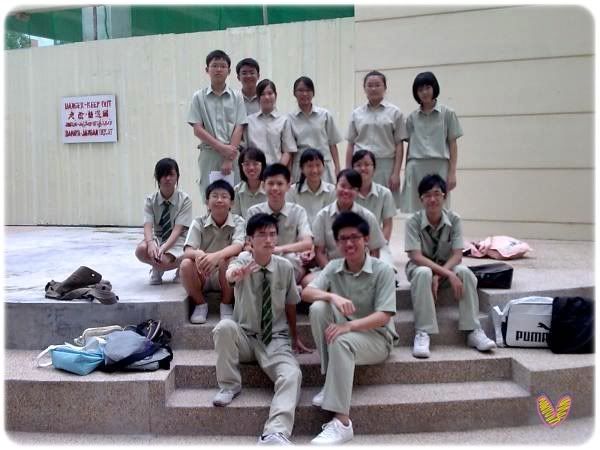 |
||
|
Wednesday, April 4, 2007
its me, ju peng, posting again. gratz to u guys for the GOLD WITH HONOURS!! after all the hardships, the long hours of practicing, the weekend practices, the scoldings from ding lao shi and guo lao shi and the others which i left out, u guys finally made a breakthrough. "not gonna get gold with honours", i have been hearing this phrase for a long time and i almost believed it, but the syf members proved me wrong. i am really proud of prssco, for it is, and will always be, the best cca in the world. i don't think i have heard something else better than what u have played just now, the other schools were quite good, when i heard hwa chong(i think, the school was the next school that was playing when we got there, should be hwa chong) play the piece they had chosen, i actually thought it would beat our "a wa shan"(i dunno how to spell). and again prssco proved me wrong. when it was announced that prssco got gold with honours, i was happy, close to shedding tears. i was just sitting there, smiling away and clapping. another feeling was about to overcome me, jealousy. i was jealous of u guys getting gold with honours. i tried to keep it out of my mind, but it just wasn't enough. until i was in the bus on the way to school did i realise that jealousy is not a solution, it was my own fault, slacking away while u guys were in the meeting room moving one step at a time closer to gold with honours. after i realised this, i will strive to become a very good dizi player, enter the syf in sec 4, and achieve GOLD WITH HONOURS with prssco, and do the school proud. if any1 has the songs played by our co during the competition could u send it to me? i want it. juPENG aka DARren blows at 7:34:00 PM. |
The GUANYUERS
GY CRAVES more bonded♥[unity] GY LINKS
GY CHATTERBOX
Our Instruments Dizi 
Three main types of dizi are frequently used in the wind section: the bangdi, the qudi, and occasionally the koudi. The bangdi is shorter in length and smaller in diameter and produces a clear and bright tone. It is frequently used in bangzi opera of Northern and southern China, hence the name bangdi. The longer and thicker qudi produces a richer and mellower tone. The qudi is usually a fourth higher in pitch than the bangdi. The koudi is the highest-pitched of all dizis.
Sheng


The sheng is a Chinese free-reed bamboo mouth organ. The earliest type ever recorded in history had 14 pipes and was discovered in Zeng Houyi's tomb in Hubei province. The most common types of sheng today include a 17-pipe instrument and a modified version for contemporary compositions, which has an expanded range of 21-37 pipes. The tone of the sheng is lucid and bright. It has a huge range, a chromatically complete scale and is able to produce chord voicings.
Suona
 The tone produced by suona is loud, piercing and uplifting, thus it is usually used to perform vibrant and lively pieces. However, its repertoire also includes some mellower pieces. The suona is commonly used as an accompaniment in the Chinese opera, singing or dancing, but also for more sombre occasions, such as during a traditional Chinese funeral procession. It is also utilised in solos or ensembles for various occasions and ceremonies. | |